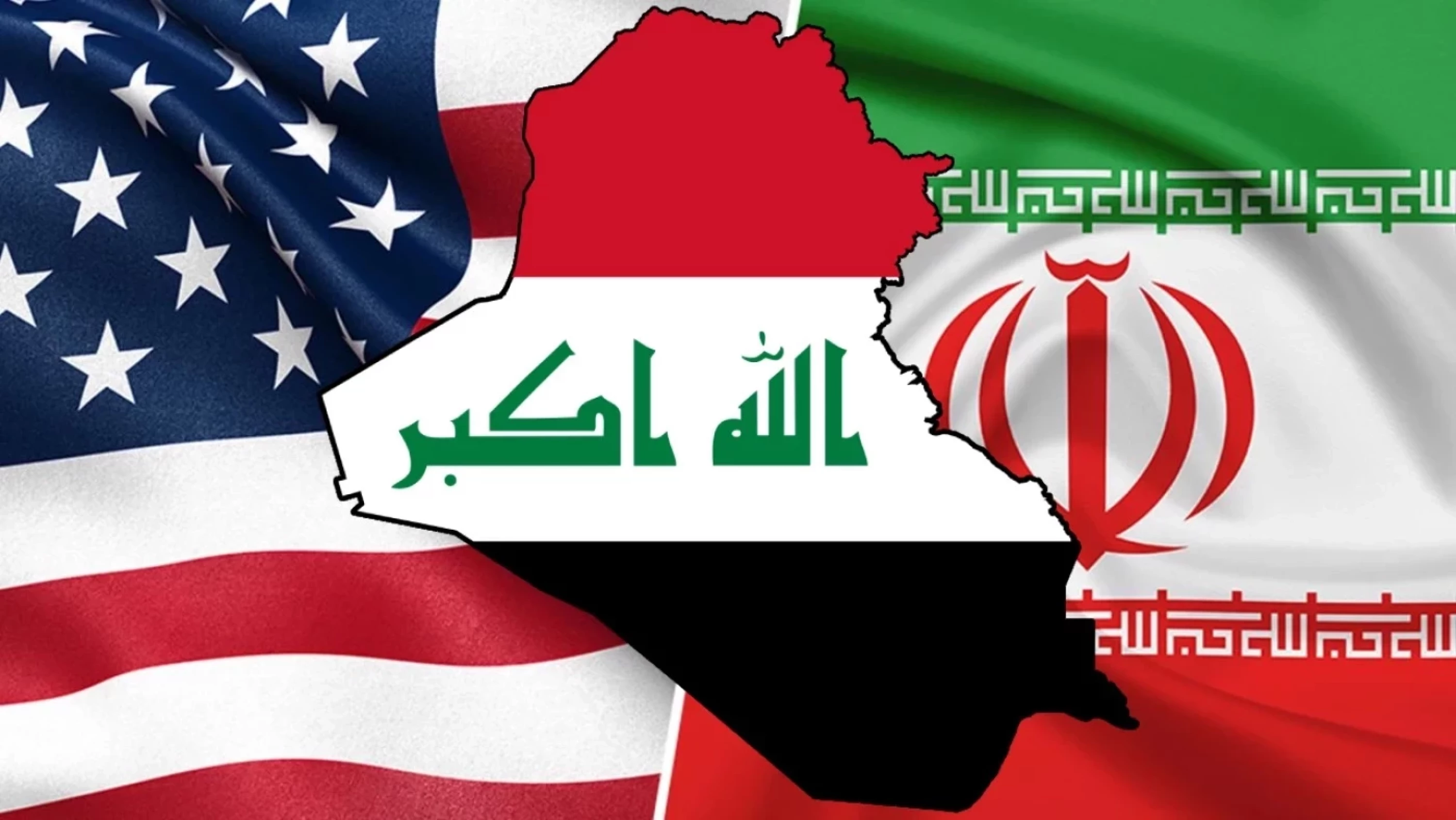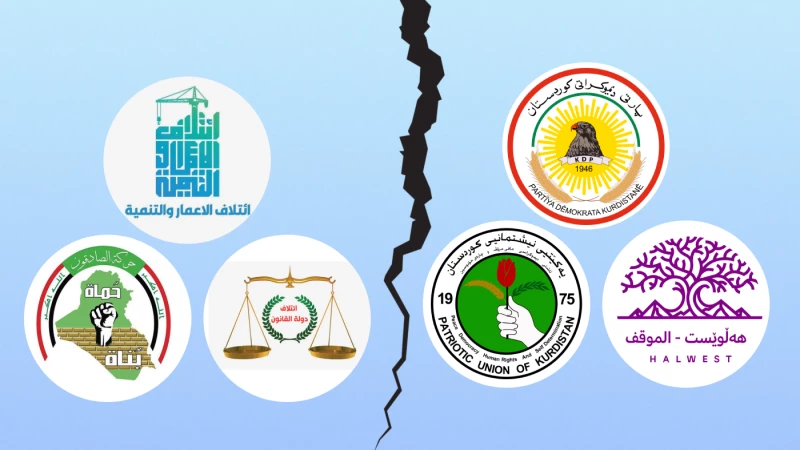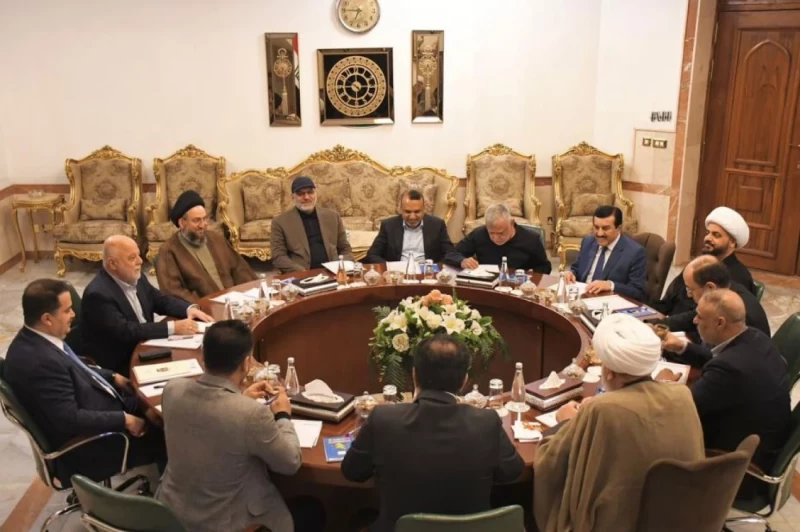Iraq faces the daunting challenge of pursuing a double-edged goal: ending the US military presence while asserting state control over the weapons of powerful Iran-backed militias. Achieving one without jeopardizing the other may prove impossible. This is going to be serious challenge that the new Iraqi government has to deal with, particularly after the political factions linked to the militias performed unexpectedly well in the November 11 parliamentary elections.
Iraqi Prime Minister Mohammed Shia' al-Sudani, who came to office in October 2022 with the backing of the pro-Iran Coordination Framework, is walking a political tightrope. With eyes on a second premiership term, Sudani does not intend to create too many enemies for himself now, neither making any statement or decision that would trigger the anger of hardline Shiite militias who have a history of standing against government decisions, nor can he withstand the pressures that will be put on him by the Trump administration to restrain or control the weapons of the so-called resistance factions.
Iraq must balance public calls for sovereignty with international demands to contain Iran’s influence. The decisions Baghdad makes in the coming months could redefine the country’s security landscape and determine whether Iraq regains full sovereignty or sinks deeper into proxy politics.
A balancing act under pressure
Since taking office, Sudani’s position on the US military presence has shifted with the political winds. In early 2023, he told The Wall Street Journal that Iraq still needed US and coalition troops to prevent an ISIS resurgence, stressing that any withdrawal would depend on the readiness of Iraqi forces. His statement was pragmatic, signaling continuity with his predecessor Mustafa al-Kadhimi’s cautious approach to avoid any direct confrontations with the Iranian proxies.
But by early 2024, as pressure from Tehran and its allied militias mounted, Sudani began echoing nationalist rhetoric calling for a “complete end to foreign military presence.” His speeches increasingly referenced Iraq’s “sovereignty” and “independence,” reflecting the growing political weight of Shiite militias that see US forces as occupiers rather than partners.
This shift was not lost on Washington. US officials have expressed frustration with Baghdad’s reluctance to rein in militias responsible for attacking American and coalition interests. Successive US administrations have sought to transform the US military role into a long-term partnership centered on training, intelligence sharing, and counterterrorism, an arrangement reminiscent of Washington’s post-2011 engagement model, something totally rejected by the militia groups.
In his most recent remarks, Sudani linked and conditioned the control of the militias’ weapons with the withdrawal of US forces from the country. The statement sounded firm, but skeptics remain unconvinced. Disarmament will require confronting militias that helped bring Sudani to power, a politically suicidal move unless he consolidates broad parliamentary backing.
America’s conditional exit from Iraq
Soon after Sudani’s statements, the US' direct and indirect responses were echoed to the Iraqi premier's ears. The first warning came from Iraqi Foreign Minister Fuad Hussein, indicating a hardened US position. In an interview with Al-Arabiya, Hussein disclosed that Washington had decided to ban six Iran-backed militias, including Kataib Hezbollah, Asaib Ahl al-Haq, and Harakat al-Nujaba, from participating in any future Iraqi government. The move, confirmed by US officials, was intended to isolate Tehran’s proxies politically and curb their influence over state institutions.
The second response came through the joint US and Iraqi high-level security consultations to determine the future of their defense cooperation under the 2008 Strategic Framework Agreement. A joint statement in November 2025 affirmed both countries’ intent to enter “a new phase” of the partnership, moving from combat assistance to advisory missions.
Behind the diplomatic language, however, Washington’s strategy is clear: to preserve influence in Iraq while gradually reducing its military footprint. The US hopes to ensure that its departure does not create a vacuum to be filled by Iran and its proxies. American policymakers remain haunted by the memory of the 2011 withdrawal, which paved the way for the rise of ISIS and deeper Iranian intervention.
This time, the US will have to be more careful with any military drawdown, and it should be conditions-based, ensuring Baghdad’s ability to curb the militias. But that condition strikes at the heart of Iraq’s domestic crisis.
The US insists that militia disarmament is a sovereign obligation for Baghdad, not a concession to Washington. Ending the US presence without addressing the militia issue would entrench Iran’s control; confronting the militias while US troops remain would risk internal strife and foreign escalation.
Militias beyond state control
The Popular Mobilization Forces (PMF), initially formed in 2014 to fight ISIS, have evolved into a sprawling network of armed groups with deep political, economic, and ideological ties to Iran’s Islamic Revolutionary Guard Corps (IRGC). Some of these factions, such as Kataib Hezbollah and Asaib Ahl al-Haq, operate as both political parties and paramilitary forces, enjoying representation in parliament and close ties to the Coordination Framework coalition that brought Sudani to power.
Despite being nominally under the prime minister’s command, the PMF in practice functions as a parallel security structure. It controls border crossings, smuggling networks, and significant economic resources. Its leaders routinely defy government orders, and its units have launched drone and rocket attacks on US and coalition forces in Iraq and Syria, acts Baghdad has failed, or refused, to prevent.
The militias’ rhetoric further reinforces their autonomy and challenge to state control. During the final days of the election campaign, Kataib Hezbollah spokesperson Jaafar al-Husseini declared before a crowd: “We played a sovereign, central role in striking all the American bases with ballistic missiles. We say it and fear nothing, with cruise missiles and drones, and we struck the American strongholds in the region. This weapon cannot be measured by politicians’ standards; this weapon will remain in the hands of the Shiite.” Such statements reveal an entrenched perception of the militias as independent power centers, beholden to neither civilian oversight nor state institutions.
However, remaining outside state jurisdiction carries inherent risks for Iraq’s fragile political system. When these factions have their interests threatened, it drives them to escalate violence or undermine Iraq’s political balance. The militias have proven that, when cornered, they can destabilize the country at will, as they did during Mustafa al-Kadhimi’s premiership, even going as far as targeting his guest house with drones, signaling that these armed factions can act with near total impunity.
Iraqi proxies, Iran’s last resort
Tehran, meanwhile, has adjusted its regional playbook. Facing Israeli pressure across the region, Iran is consolidating its influence in Iraq, which it views both as a buffer zone and a strategic extension of its security architecture. According to recent Israeli intelligence assessments cited by Maariv, Iran has adopted a “dual-track” approach: encouraging some factions to engage in politics while strengthening others militarily.
The IRGC’s Quds Force continues to arm and train these groups, expanding their capabilities and embedding them deeper into Iraq’s security landscape. In some regions, their power rivals that of the national army, making any talk of disarmament aspirational at best and perilous at worst.
Iran has recently shifted its focus, seeking to place the burden on militias in Iraq and aiming to move the center of its military gravity from Lebanon, Syria, and the Gaza Strip to Iraqi territory, following the strikes sustained by the “Iranian axis” in those arenas.
For Tehran, maintaining leverage in Baghdad serves two goals: ensuring a friendly government that safeguards its economic interests and retaining an armed deterrent capable of targeting US and Israeli assets if needed. For Iraq, this entrenched Iranian role blurs the line between alliance and subordination and would only create more hardship for Iraqis.
With the election not expected to produce major changes, the US request to prevent the political wing of the militias from entering the new government will face strong resistance both from the militias and from Iraq itself. Unsurprisingly, the Iranian response came quickly through the Iranian foreign ministry spokesperson, who stated that any external interference in the Iraqi election is rejected and condemned by the Iraqi people, the government, and all responsible countries.
The road ahead
If history is any guide, Iraq’s transition to full sovereignty will be slow and fraught with risk, particularly as Iran-backed militias will neither compromise on their drones and missiles nor on their illicit trade with Iran. The 2026 coalition withdrawal could mark the end of one chapter of foreign presence but not necessarily a sign of genuine autonomy from Iran. More than two decades after the US liberation, Iraq still lacks a monopoly on force, a coherent foreign policy, or an independent identity free from regional tug-of-war.
For the US, a hasty exit without security guarantees would repeat the mistakes of 2011. For Iraq, failure to curb militia power would cement its role as a battlefield for regional rivalries and could pave the way for Israeli military intervention. Alternatively, a sudden, Afghanistan-style US withdrawal for which Iraq is unprepared could plunge the country into chaos.
As Sudani eyes reelection, he must convince voters and his backers that he can deliver both stability and sovereignty. That means asserting the state’s authority not only over foreign troops but also over domestic militias that act as states within the state. Whether Iraq can achieve that balance will depend on political courage and on whether its leaders are willing to confront their own allies.



 Facebook
Facebook
 LinkedIn
LinkedIn
 Telegram
Telegram
 X
X


